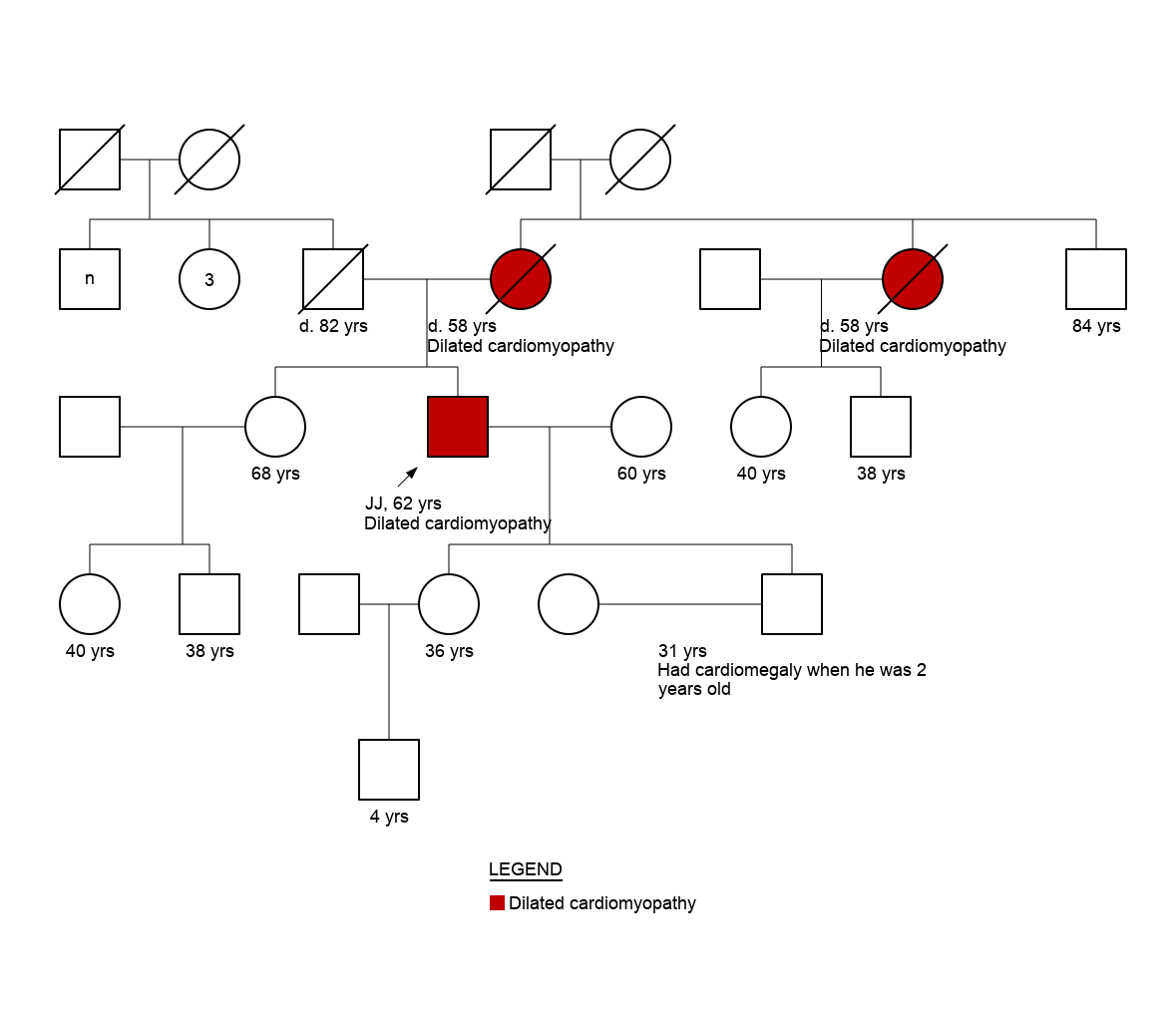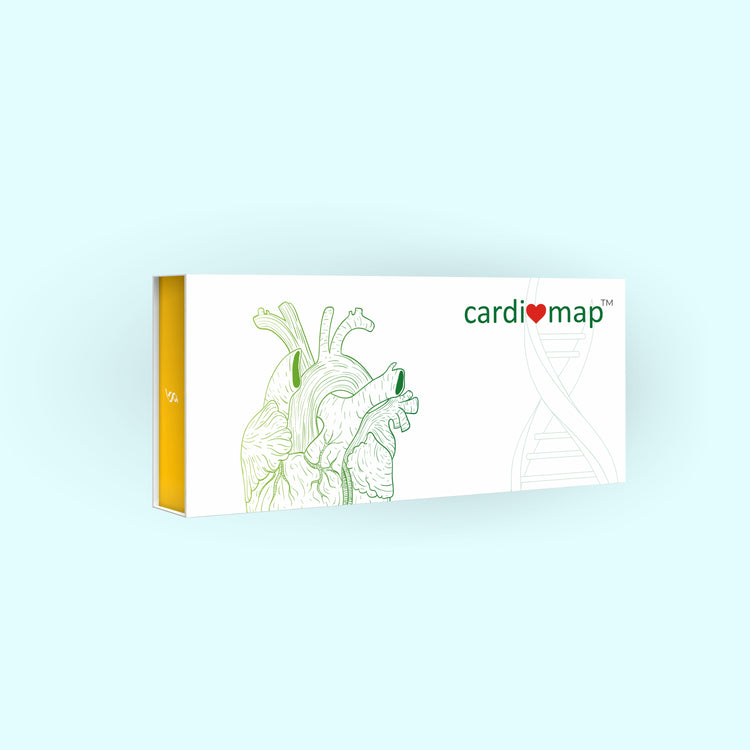Utilization of Next Generation Sequencing for Cardiomyopathy cases
Jun 23, 2023
2282 Views
Clinical history:
A 62 years old male proband came for genetic counseling in view of him strong family history of Dilated cardiomyopathy (DCM)
Pre test Genetic counseling:
JJ was referred for Pre test genetic counseling in view of a strong family history of DCM. He was worried as he had started noticing symptoms of palpitations and shortness of breath. His ECG and 2D were reported to be normal.
Family history:
Proband’s mother and maternal aunt were diagnosed with Dilated cardiomyopathy and deceased because of the same. The wife was really worried as she had seen her mother in law go through similar symptoms. And it was reported that the son has a history of Cardiomegaly when he was 2 years old.
In view of strong family history of DCM- Whole exome sequencing was recommended for JJ
Post test Genetic counseling:
Whole exome sequencing revealed heterozygous mutation c.1568 T>C(p.Leu530Pro) and in the LMNA gene associated with Cardiomyopathy, dilated 1A (OMIM **150330).These genetic changes are classified as likely pathogenic.
The couple was surprised and did not expect a positive result.
We addressed the emotion while walking them through the report. Although there is a family history of DCM they were not ready and were not expecting a finding. The couple was also worried about their kids‘ risk of having the gene that could cause DCM. A targeted sanger was advised for the kids
RECURRENCE RISK Autosomal Dominant condition:
Autosomal dominant pattern of inheritance. What this means is that, out of the 2 sets of genes we have for all of our genes (we get one copy of each of our genes from our mother via the egg, and one copy from our father via the sperm), a change in a single gene of the gene-pair is known to cause illness.An individual with Dilated Cardiomyopathy, can either pass down the working copy of the gene or the non-working copy of the gene to their children. This means a 1 in 2 or 50% chance of having a child with DCM . The chance of “passing down” a genetic condition to the next generation is referred to as recurrence risk. The recurrence risk for autosomal dominant conditions, such as , is 50% in each pregnancy.
Dilated Cardiomyopathy:
Dilated cardiomyopathy (DCM) is the most common type, occurring mostly in adults younger than 50. It affects the heart‘s ventricles and atria, the lower and upper chambers of the heart. Frequently, the disease starts in the left ventricle, the heart‘s main pumping chamber. The heart muscle begins to dilate, stretching and becoming thinner. As a result, the inside of the chamber enlarges. The problem often spreads to the right ventricle and then to the atria. As the heart chambers dilate, the heart muscle doesn‘t contract normally and can‘t pump blood very well. As the heart becomes weaker, heart failure can occur. Common symptoms of heart failure include shortness of breath, fatigue and swelling of the ankles, feet, legs, abdomen and veins in the neck
Pedigree
RECOMMENDATION: Targeted Sanger analysis for proband’s children
CONCLUSION
With an increase in Cardiomyopathy cases in recent years it is important to identify if there is a genetic etiology for such cases. And this case illustrates the importance of Next generation sequencing for family history of Cardiomyopathy. Although there is family history of DCM the family was not expecting a positive finding. Now they were more aware of the condition and its implication. They were referred back to their Cardiologist for routine monitoring of his cardiac health.


